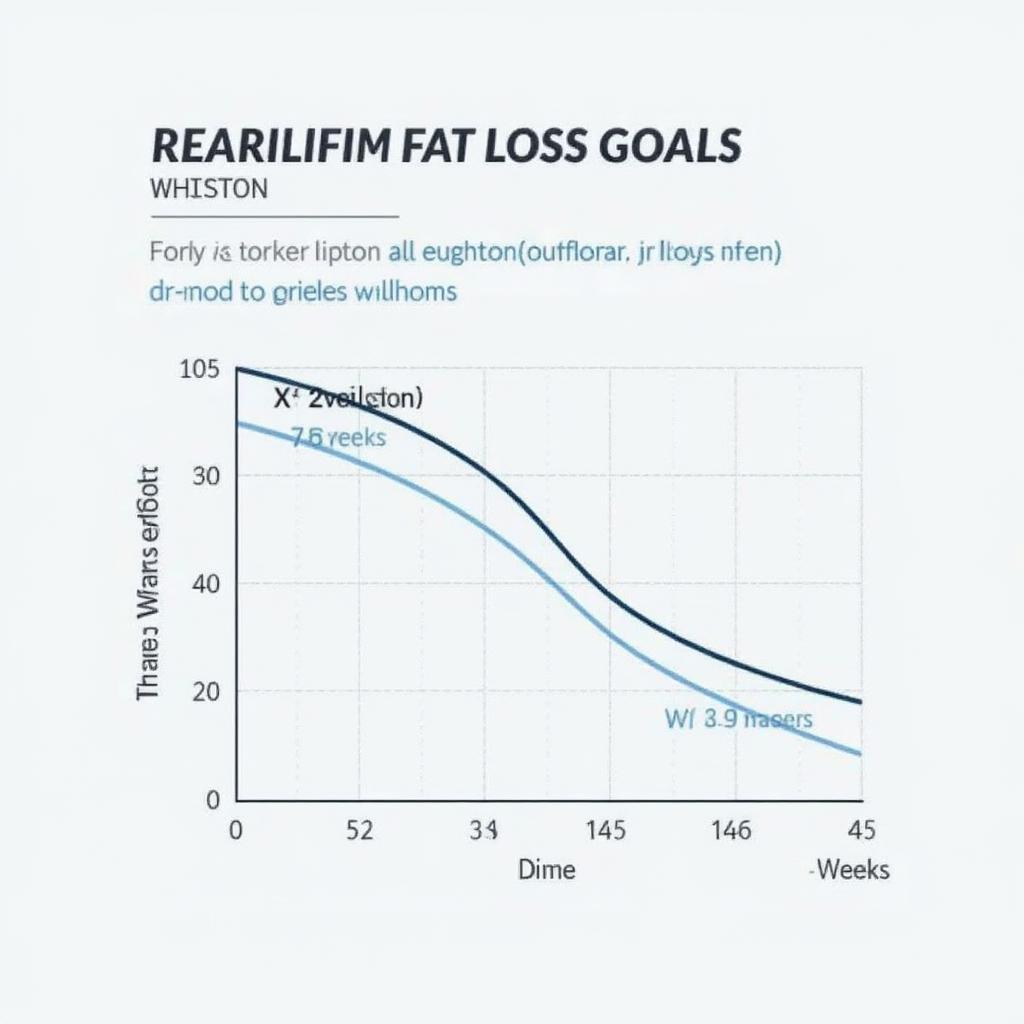How to Lose 20 lbs in a Week: Is It Realistic and Safe?

Losing 20 lbs in a single week is a goal many desire, but is it truly achievable and, more importantly, is it healthy? The allure of rapid weight loss is undeniable, often fueled by the promise of immediate results. However, the reality is often more complex and requires a deep dive into the science of weight loss and the potential risks involved. This article will explore the feasibility of losing 20 lbs in a week, the methods people often employ, and what a sustainable and safe approach to weight loss truly looks like. We’ll debunk the myths and provide a realistic understanding of what you can achieve and how to do it in a way that benefits your health in the long term.
Understanding the Reality of Rapid Weight Loss
The human body is not designed to lose weight at an extremely rapid pace. When people talk about losing 20 pounds in a week, it’s crucial to understand that a significant portion of this weight loss is often due to water loss and changes in glycogen stores, not necessarily pure fat loss. Dr. Emily Carter, a renowned nutritionist, explains, “When you drastically cut calories, your body responds by first depleting its glycogen stores, which also causes a significant loss of water weight. True fat loss is a much slower process.” This explains why initial weight loss on a drastic diet is often more dramatic.
Here’s a breakdown of what usually happens during rapid weight loss:
- Water Loss: A significant amount of weight you see on the scale during the initial phases of drastic diets is water. Carbohydrates hold onto water in your body; thus, cutting back on carbs causes you to shed excess water.
- Glycogen Depletion: Glycogen is the stored form of glucose, and when you reduce your caloric intake, your body uses up these stores quickly. This process contributes to further weight loss, primarily through water loss.
- Actual Fat Loss: Real fat loss is typically a slower and more sustainable process, often limited to 1-2 pounds per week in a healthy diet, according to health professionals.
The Unsafe Methods Behind Rapid Weight Loss
Trying to lose 20 lbs in a week often leads to extreme and unhealthy methods that can be detrimental to your health. Common dangerous strategies that people may employ include:
-
Extremely Low-Calorie Diets: Consuming significantly fewer calories than your body needs can lead to nutrient deficiencies, muscle loss, and a slowed metabolism. This can also lead to a “yo-yo” effect of weight loss and gain.
-
Excessive Exercise: Overdoing exercise can result in injuries, exhaustion, and hormonal imbalances. It can also cause increased hunger, leading to unhealthy eating behaviors.
-
Fasting or Extreme Caloric Restriction: Prolonged fasting and severely limiting calories can lead to muscle loss, hormonal imbalances, fatigue, and impaired cognitive function. This is not a healthy or sustainable approach to weight loss.
“The problem with extreme diets,” says Dr. Carter, “is that they often neglect the crucial components of a balanced approach – proper nutrition, regular exercise, and adequate rest.” These methods not only produce unsustainable results but also come with substantial health risks.

Why You Shouldn’t Aim for 20 lbs in a Week
While the temptation to lose weight quickly may be strong, aiming for 20 lbs in a week is generally considered unhealthy and unrealistic for sustained fat loss. Here are several reasons why this is the case:
- Muscle Loss: Extremely rapid weight loss tends to come from both fat and muscle. Losing muscle mass can slow down your metabolism, making it more difficult to lose weight in the long run. It also compromises strength and physical function.
- Nutrient Deficiencies: Severely restricting calories can lead to a lack of essential vitamins, minerals, and macronutrients needed for optimal health. This can cause fatigue, hair loss, and other deficiencies.
- Metabolic Slowdown: When you significantly cut calories, your body may go into “starvation mode,” slowing down your metabolism to conserve energy. This makes further weight loss more challenging and can lead to weight regain.
- Rebound Weight Gain: Rapid weight loss is often followed by a rapid regain, often exceeding the initial weight. This is due to the changes in metabolism and hormonal regulation caused by extreme diets.
- Health Risks: Such extreme approaches can increase the risk of gallstones, electrolyte imbalances, cardiac problems, and other health complications.
These points highlight why such rapid weight loss should be avoided. Focus should be on sustainable and healthy methods for long-term success.
A Healthy and Realistic Approach to Weight Loss
Instead of striving for the impossible goal of losing 20 lbs in a week, consider a more balanced and sustainable approach. Here’s how to focus on realistic and healthy weight loss:
- Balanced Diet: Prioritize whole foods like fruits, vegetables, lean proteins, and whole grains. Avoid processed foods, sugary drinks, and unhealthy fats. Pay attention to portion sizes.
- Regular Exercise: Aim for at least 150 minutes of moderate-intensity exercise per week, combined with strength training two or more days a week. Find activities that you enjoy to make exercise sustainable.
- Gradual Calorie Reduction: Reduce your calorie intake in a modest way rather than drastically cutting down on calories. A gradual reduction of 250-500 calories per day usually leads to a healthy weight loss rate of 1-2 pounds per week.
- Adequate Hydration: Drink plenty of water throughout the day. Water is essential for metabolism and can help control appetite.
- Sufficient Sleep: Aim for 7-9 hours of quality sleep per night. Sleep deprivation can disrupt hormones that regulate appetite and metabolism, making weight loss more difficult.
- Stress Management: Find healthy ways to manage stress, such as exercise, meditation, or spending time in nature. High stress levels can lead to weight gain.
- Patience and Consistency: Sustainable weight loss is a marathon, not a sprint. Stay consistent with your healthy habits and be patient with the process.
Setting Realistic Weight Loss Goals
When setting your weight loss goals, it’s crucial to be realistic and focus on a sustainable approach. Instead of aiming for a specific number of pounds lost in a short period, focus on small, achievable changes that you can incorporate into your daily routine. This is more likely to lead to long-term success and better overall health.
Consider these strategies for setting healthy goals:
- Start Small: Don’t try to change everything at once. Start with one or two new healthy habits and gradually add more as you become comfortable.
- Track Your Progress: Keep a food journal or use a fitness app to track your diet and exercise habits. This can help you stay accountable and motivated.
- Set Process Goals: Focus on changes in your lifestyle, such as eating healthier, exercising regularly, and getting enough sleep. These process goals are more achievable and can lead to sustainable weight loss.
- Be Patient: Remember that weight loss takes time. Don’t get discouraged if you don’t see results immediately. Focus on consistency and be patient with the process.
- Celebrate Small Wins: Recognize and celebrate your progress, no matter how small. This can help you stay motivated and maintain momentum.
“Consistency is key,” advises Dr. Mark Peterson, a sports medicine physician. “It’s more effective to make small, sustainable changes that gradually add up over time than to attempt drastic changes that are impossible to maintain.” Understanding this is vital for achieving lasting results.
To further illustrate, consider the concept of how to lose weight fast and keep it off. This often involves a combination of strategic diet changes, regular exercise, and a focus on lifestyle modifications rather than short-term fixes. Additionally, the discussion around how to lose 40 pounds fast in 2 weeks often serves as a point of comparison to help users realize that while aiming high is good, there must be reasonable boundaries in place.
The Role of Mindset in Weight Loss
Your mental approach to weight loss is just as important as diet and exercise. A positive and resilient mindset can make all the difference in your journey. Consider these strategies to support your mental well-being during weight loss:
- Self-Compassion: Be kind to yourself and avoid self-criticism. Understand that setbacks are normal, and don’t let them derail your progress.
- Focus on Health, Not Just Weight: Shift your focus from just losing weight to improving your overall health. This can help you stay motivated and make healthy choices a long-term lifestyle.
- Set Realistic Expectations: Avoid comparing yourself to others or setting unrealistic goals. Focus on your own progress and celebrate your achievements.
- Seek Support: Reach out to friends, family, or support groups for encouragement and accountability. Sharing your journey with others can help you stay motivated.
- Manage Stress: Practice stress-reducing activities like yoga, meditation, or spending time in nature. High stress levels can sabotage weight loss efforts.
Taking care of your mental well-being throughout your weight loss journey is essential for long-term success and overall health. Remember that weight loss is not just a physical process; it’s also an emotional one.
Understanding Body Composition
Instead of fixating solely on the number on the scale, consider understanding your body composition. This includes:
- Body Fat Percentage: This measures the amount of fat in your body relative to your total weight. This is a more accurate indicator of health than weight alone, so consider looking into how to lose body fat percentage fast.
- Lean Muscle Mass: This is the amount of muscle in your body. Building lean muscle mass helps boost your metabolism and improves strength and physical function.
Understanding body composition gives a more nuanced picture of your health progress than just tracking the numbers on a scale. In many situations, an individual may not have a weight change yet may have successfully changed their body composition, meaning they have lost fat and gained muscle.
When to Seek Professional Help
While many people can successfully lose weight on their own, sometimes professional guidance is beneficial. Consider seeking professional help in these situations:
- Underlying Health Conditions: If you have any underlying health conditions like diabetes, thyroid problems, or heart disease, working with a doctor or registered dietitian can help ensure that your weight loss program is safe and effective.
- Difficulty Losing Weight: If you have trouble losing weight despite following a healthy diet and exercise plan, seeking professional help can identify any underlying issues or develop a tailored plan.
- Mental Health Challenges: If you are struggling with emotional eating, disordered eating patterns, or other mental health challenges, seeking help from a therapist or counselor can be beneficial.
A healthcare professional can help develop a personalized weight loss plan tailored to your unique needs and health status. This can often be far more sustainable and effective in the long run, especially for those facing certain challenges.
Long-Term Weight Management
The key to sustainable weight loss is to focus on long-term strategies rather than quick fixes. Here are several strategies to help maintain weight loss over the long term:
- Maintain Healthy Habits: Continue to follow the same healthy eating and exercise habits that helped you lose weight. This is crucial for long-term success.
- Regular Monitoring: Weigh yourself regularly and track your progress. This can help you identify and address any potential issues early on.
- Be Mindful: Pay attention to your body’s hunger and fullness cues. Avoid mindless eating and emotional eating.
- Stay Active: Incorporate physical activity into your daily routine, and find activities you enjoy to make exercise sustainable.
- Support System: Build a support system of friends, family, or support groups to help you stay motivated.
“Long-term weight management requires a consistent commitment to healthy lifestyle habits,” says Dr. Sarah Chen, a health coach. “It’s not about achieving a goal and then going back to old habits. It’s about making sustainable changes that you can stick with over time.” This is especially evident when we look at stories of weight loss 50 lbs before after, where consistency and healthy habits were vital to success.
Conclusion
While losing 20 lbs in a week may seem appealing, it’s not realistic, healthy, or sustainable. Focus on a balanced approach involving a nutritious diet, regular exercise, adequate sleep, and stress management. Set realistic goals, be patient with the process, and remember that weight loss is a journey, not a destination. Instead of striving for drastic results, work towards a healthy lifestyle that you can maintain for years to come. It’s about building sustainable habits that benefit you both physically and mentally, rather than seeking quick fixes that can be harmful in the long run. Remember, the key to long term success is not a race but a balanced journey.
Frequently Asked Questions (FAQ)
-
Is it possible to lose 20 lbs in a week safely?
No, losing 20 lbs in a week is generally not considered safe or sustainable. Such rapid weight loss usually involves extreme measures that can lead to various health complications. It’s better to aim for a more gradual and consistent approach. -
What’s the safest rate of weight loss?
A healthy and safe rate of weight loss is typically 1-2 pounds per week. This allows your body to lose fat while minimizing muscle loss and other negative side effects. Slow and steady is the best way to go. -
Will drastic diets lead to long-term weight loss?
Drastic diets that promise rapid weight loss often lead to short-term results followed by weight regain. These diets are difficult to maintain and can negatively impact your health and metabolism over time. -
What should I focus on if not rapid weight loss?
Focus on building healthy habits like a balanced diet, regular exercise, adequate hydration, and good sleep. These habits will be far more sustainable and have a more profound positive impact on your overall well-being. -
Why do I experience rapid weight loss in the beginning of some diets?
Rapid initial weight loss is often due to water loss and the depletion of glycogen stores, not fat loss. Once your body adjusts to a new diet, the weight loss rate tends to slow down to 1-2 pounds per week. -
How can I support my weight loss journey mentally?
Practice self-compassion, focus on health rather than just weight, set realistic goals, seek support from friends and family, and manage stress. Mental well-being is essential for long-term success. -
Should I track my body fat percentage instead of just weight?
Yes, tracking body fat percentage can provide a more accurate picture of your progress than just weighing yourself. Body fat percentage measures the amount of fat in your body relative to your total weight. -
When should I seek professional help for weight loss?
Seek professional help if you have underlying health conditions, difficulty losing weight despite healthy efforts, or are struggling with mental health challenges related to eating. -
What does sustainable weight management entail?
Sustainable weight management involves maintaining healthy habits, regular monitoring, mindful eating, staying active, and building a strong support system. This is a lifelong commitment rather than a short-term goal.




